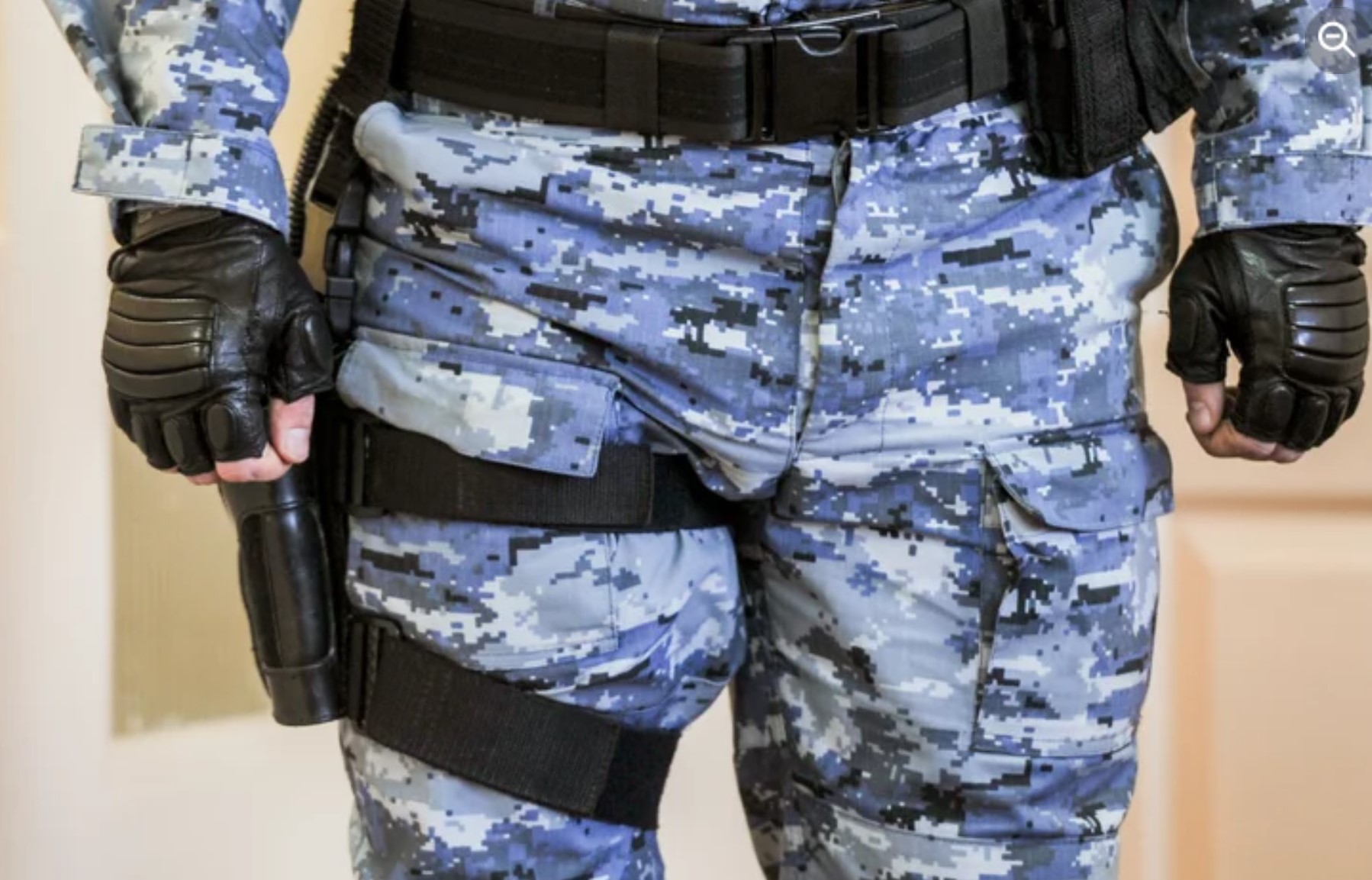
Russia’s attempt to use asylum-seekers to destabilize Finland in revenge for its accession to NATO hit a major obstacle last week when Finland temporarily closed all border crossings, accusing Russia of ‘instrumentalizing’ asylum seekers. With one ‘use’ for hundreds of asylum-seekers and migrants having dried up, the Russian authorities found another, namely Russia’s war against Ukraine. Unlike Finland, Russia has no qualms about forcing asylum seekers to agree to fight or face forced deportation to their country of origin.
The BBC’s Russian Service has published a report about this new ‘source’ of mercenaries. Its findings are based on scrutiny of recent court rulings, at least one interview with an asylum seeker from Somalia, and other such stories. BBC journalist Oleg Boldyrev explains that Finland closed the border totally because of an anomalous surge in asylum seekers from the Middle East and Africa trying to cross into Finland from Russia. Finland accused Russia of ‘instrumentalizing’ asylum seekers and of deliberately generating such a flow of refugees.
Just as earlier with respect to shenanigans from the Belarusian authorities at the border with Poland and Lithuania, there was plenty of evidence that Russia’s border guards either did nothing to prevent such an unmanageable flow of asylum seekers or positively encouraged it. This entirely atypical lack of interest in checking foreigners’ papers changed dramatically in the middle of November. The detentions in large numbers of those whose visas had expired coincide with the first partial, and then total, closure of the border. Virtually all of the 236 court rulings over infringements of migration legislation were issued between 16 November and the beginning of December. The BBC notes that, judging by the statistics available, no detentions for such infringements were made in the first two weeks of November at all. The same situation was seen in all three regions of Russia that are on the border with Finland.
The BBC spoke with one Somalian, Avad, who had first arrived in Moscow at the end of July, but had soon travelled on to Belarus, where the regime has been using migrants and asylum seekers for this form of hybrid warfare against the EU since 2021. The Polish border guards are, unfortunately, often very brutal, and Avad eventually ended up back in Minsk, and then in Moscow. He explains that in the middle of November, he learned from social media and chats that it had become easier to cross into Finland and set off for St Petersburg. From there, he and another person from Somalia had reached the border crossing by taxi, with this costing 200 USD. Avad, whose real name and any other identifying information are concealed for his safety, asserts that all such actions were carried out independently, without anybody organizing or helping them. Whether or not this is true, the very fact that it was so easy to travel here, there and everywhere, with an expired visa, suggests that there was official policy which changed only when Finland closed the border.
Other accounts, published here, paint a rather different picture. One Syrian, called Nasser, told the website InfoMigrants that he had been “brought to the border alongside hundreds of other migrants coming from Syria, Yemen, Belarus, Iraq, and even countries as far as Somalia.”
The 43-year-old felt stuck and that he had been used by the Russian authorities, as well as tricked by the person who had deceived him into coming to Russia. Although his account is also a reflection of the sheer corruption of Russia’s enforcement bodies, he is clear that the border guards were fully aware of the mass attempts to cross into Finland. “They know what is going on, and we all feel the same: we are being used by the Russian government to put pressure on the European Union, to put pressure on Finland.”
Finland, however, put a stop to this ploy by closing the borders, at which point Russian tactics changed. The Somalian, whom the BBC identifies as Avad, was one of many who were detained, and swiftly brought to a court which fined them and ordered their imprisonment in a temporary holding facility, pending expulsion from the country.
It was on the sixth day after he was placed in the detention unit that men in uniform appeared. They offered those facing expulsion a deal: the expulsion was revoked, but they needed “to work for the state”. This was to be for a year, with the men also offered remuneration, but given no clear information as to what such ‘work for the state’ entailed. Twelve men agreed – six from Somalia, one Cuban and five from Arabic countries.
The Kremlin was well aware from the outset that general mobilization was the one red line that was dangerous for it to cross. It has struck deals with convicted prisoners, foreign mercenaries and, also, asylum seekers and labour migrants from CIS countries.
While there seems to have been choice when it came to convicted prisoners, the same is not always true with respect to labour migrants or such asylum seekers. Somalian organizations or radio stations have spoken of several men being ‘recruited’ to fight by force. In the case of asylum seekers, the very fact that they are faced with being forcibly returned to the country from which they fled, is in flagrant violation of international law. For all that the choice is terrible, some of the men, including Avad, did refuse when they finally understood that they were being sent as mercenaries to fight in Ukraine.
Russia is also using raids on mosques or prayer houses, as well as on construction sites and other places typically employing labour migrants from Central Asian republics. Nor is it only those who do not have up-to-date papers who are in danger of forced ‘enlistment’ to fight in Ukraine. Migrants are threatened with deportation for them or their families, if they refuse to fight, with criminal charges after the police claim to have ‘found’ drugs, etc. Labour migrants from Central Asia are already treated very badly in Russia and have every reason to take such threats seriously. They are, however, also treated like cannon fodder in Ukraine, and very many do not return.
Slightly earlier in December 2023, the BBC reported that they are aware of 254 foreign nationals who were killed fighting Russia’s war against Ukraine. It is likely that the real number is significantly higher.



